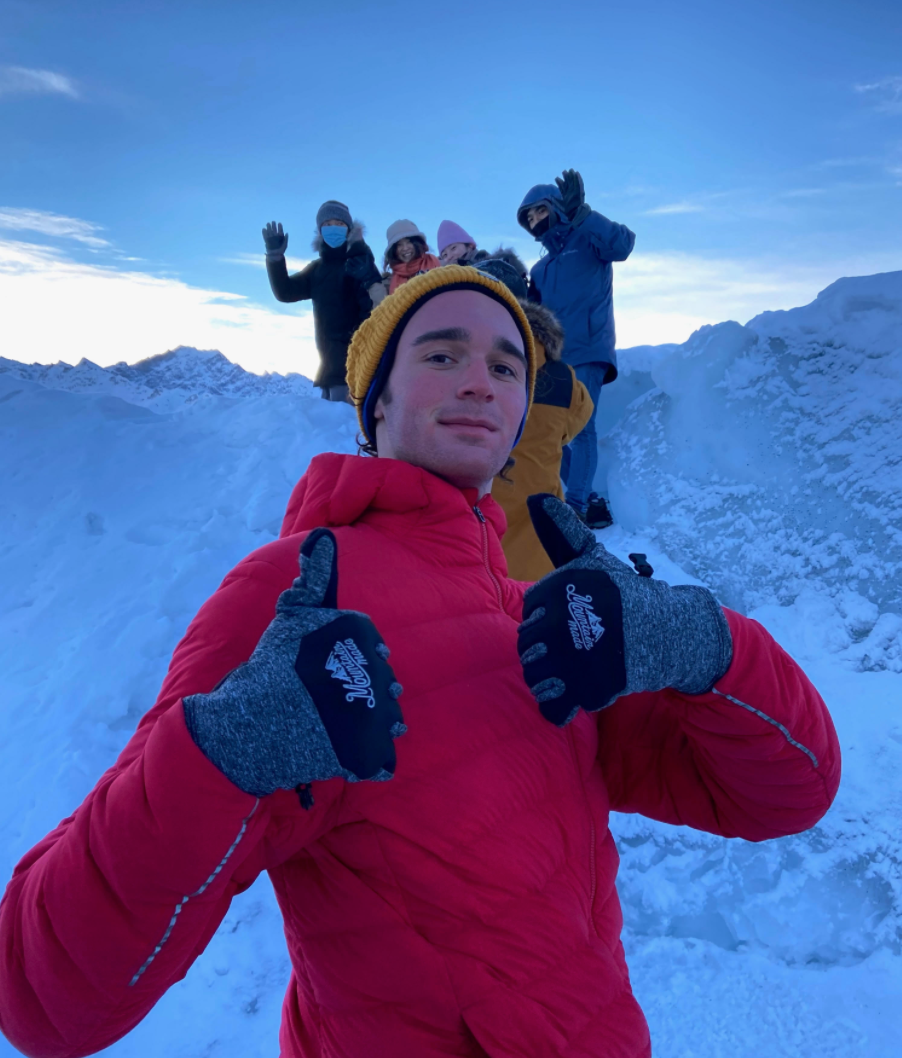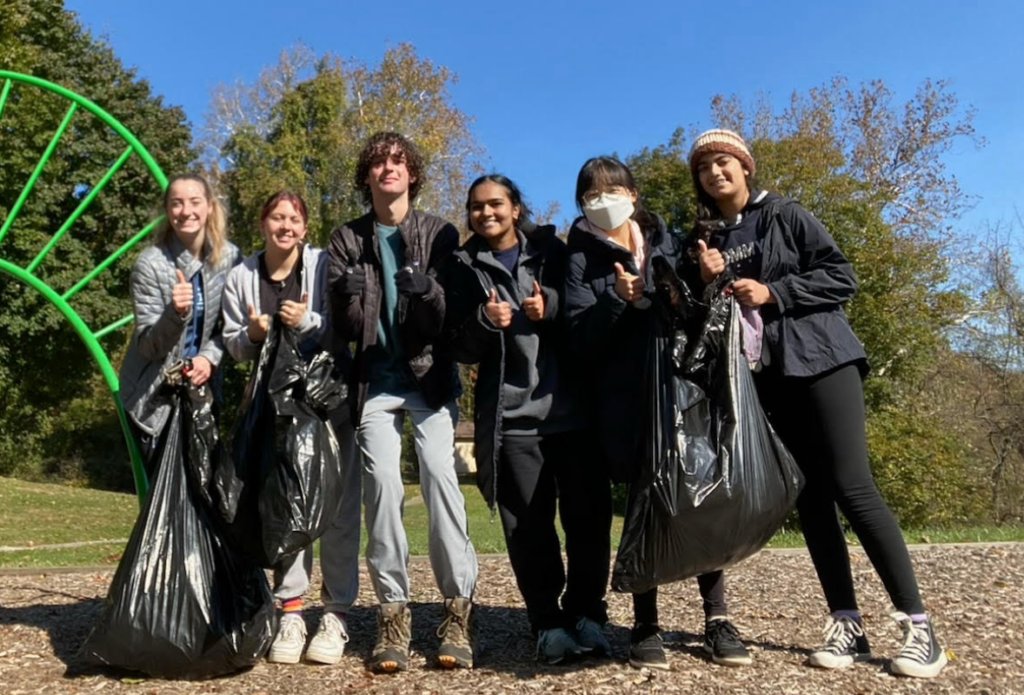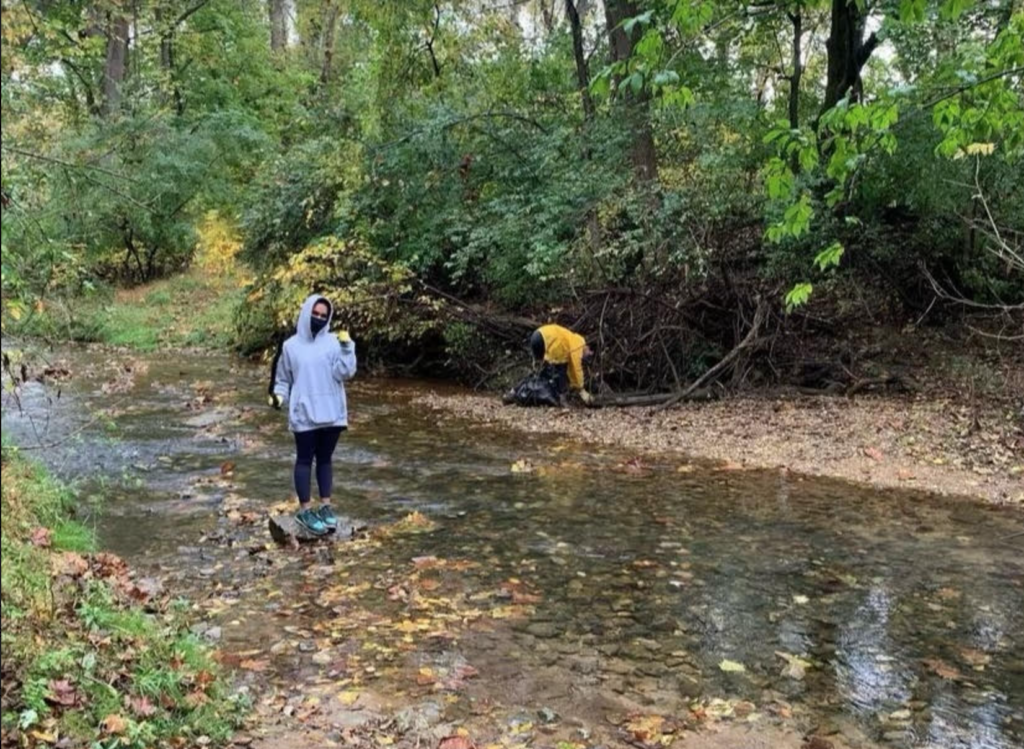ACE INTERVIEW: Bobby Zimmerman on Addressing Community Needs through Community Action
|
March 24, 2022

Bobby Zimmerman is a 16-year-old student activist located in Malvern, Pennsylvania (Southeastern PA). He works with his schools’ Environmental Enthusiasts club to clean up sites in their community which are heavily affected by pollution, fundraise for local organizations, like The Philadelphia Environmental Justice Initiative and national initiatives like Tree-Plenish, and educate his peers on pressing environmental issues. He is passionate about the power of local community action and the ways in which, together through collective action, we can all create profound change, starting at the grassroots level and growing to the national and international stage.
Nico Lovejoy (NL): When did you first learn about the climate crisis? What was your immediate reaction?
Bobby Zimmerman (BZ): I initially learned about the climate crisis in my freshman year. I had heard general information about the deteriorating conditions of the Earth before that in science classes, but was educated in-depth by a friend of mine who recruited me to join the environment club at my school and attend a march in the city of Philadelphia with her and other club members. At the time, I was skeptical of the information she shared with me and chose to not attend the march. I did not think that such a pressing issue would be ignored by well-educated politicians and legislatures who’s job is to ensure wellbeing of the people they represent. As I educated myself more, my disbelief shifted to shock and disappointment in our legislation. In my mind it made no sense that an issue that affects almost all people, either directly or indirectly, would not be prioritized.
NL: When did you first decide to get involved in climate activism? How and why did you come to that decision?
BZ: I first decided to get involved in activism my sophomore year. Following the COVID shutdown, I wanted to join a group of likeminded people who also wanted to make and see changes in our community. The club had events almost every month and did hands-on cleanup work and somewhat hands-off fundraising. I also wanted to find away to productively start taking action, and this club was the perfect opportunity. The club made environmental issues much more concrete and approachable than when I was approaching them on my own, and allowed me to do more in-depth research on specific aspects that I was drawn to.

NL: What does the word “climate emergency,” mean to you?
BZ: To me, climate emergency means the need for urgent action to halt climate change and limit or prevent extreme environmental damage from occurring. While this definition can be taken in numerous ways, I mainly perceive it as the need to rethink our approach to the treatment and usage of the environment for the well-being of our generation and future generations to come.
NL: You’ve participated in lots of locally-based actions, can you tell me about a few you’re particularly proud of?
BZ: The activities that I am most proud of are the community cleanups that my club has done over the past two years. Seeing the before-and-after comparisons after a few hours of trash pickup is consistently rewarding to me as it makes me feel like I am directly helping to better the environment around me. I also feel particularly connected to these events as they directly affect members of my community in a positive way, which makes me even more passionate about the cleanups.
NL: Why is local community action so important to you?
BZ: I think that successful movements often start with local, grassroots organizing, that gradually gain more support and grow into larger, influential movements. I work in my community to “fulfill” this idea and grow support for larger campaigns, like ACE. I think that a lot of people stray away from larger movements because they often feel a disconnect to the issue, or cannot see it in front of them, so they presume it does not exist anywhere in the world. By working in my community and pointing out our own environmental issues and short comings, I hope to push those around me to follow in suit and take action of their own.
NL: Do you think some people underestimate the value of local community action in favor of federally-focused actions? Should people change their perspective on that?
BZ: I do think that people often belittle community action and place too much emphasis on federal action. While federal action can instate widespread changes in an organized manor fairly quickly, it is not possible without hundreds of constituents pushing for changes locally. In fact, when meeting with my own county’s representative, Representative Houlahan, with other ACE Action team member, I learned that in many cases action is not taken federally because of a lack of widespread community support. So, I think that people must change their view on this particular issue in order to ensure that necessary movements, including declaring a climate emergency, have the ability to be discussed on the federal level.
While federal action can instate widespread changes in an organized manor fairly quickly, it is not possible without hundreds of constituents pushing for changes locally.
NL: When and why did you get involved with the Action for the Climate Emergency?
BZ: I got involved with the Action for the Climate Emergency this past fall after a peer of mine, Pujitha Masireddy, shared the organization with me and other members of the environment club at my school. I chose to join the organization because I saw it as a next step in my personal climate activism that would also provide me with more climate education support than I had prior. Since then, I have been an Action Team Lead for the Great Valley chapter.
NL: What kinds of actions have you been able to participate in through your work with ACE?
BZ: Through ACE, I have been able to join multiple informative zoom sessions on how to inspire change and take action, advocate for such changes with local government officials, and make an action plan with my chapter of how to approach issues in and around our community.
NL: When was a time you felt proud of the impact you had made through your climate activism?
BZ: I felt proud of the impact I made through my activism after assisting to plan a Tree-Plenish tree planting event in my community. This event will plant fifty saplings around my community, bettering our local environment’s health. While it is an extremely small effort, I still felt and actively feel proud that we are getting to do something hands-on that will not only help our community now, but in the long term.

NL: How do you cope with the fear and anxiety that the climate crisis induces?
BZ: I cope in a few different ways that I have found are very helpful. Mainly, I try to limit my time reading and viewing material on the climate’s condition. While I ensure that I am up to date on current climate events and issues, I avoid falling down a rabbit hole of ominous articles filled with unanswered questions or concerns. With my phone always on hand, it is difficult at times to not tap on the article notification sharing that the world is doomed in yet another way, but I try to catch myself when information begins to do more harm than good. Further, I keep such issues in perspective, meaning that I recognize that I am a sixteen year old who cannot fix the climate by myself, and I remember how many others are in my shoes: worried about the future of our world and how we can fix it. Finally, I reach out to people around me, like my peers involved in ACE, to talk about my stressors and alleviate my anxieties, which usually is the best option for myself because talking about the climate and getting my thoughts out of my head almost instantly reduces my worries.
NL: What is your advice to young people who want to get involved in climate activism?
BZ: My advice to other young people who want to get involved is to start small and use your voice! You don’t have to pass a federal bill to make a difference in the environment, even getting others to look into climate issues can help foster change. In my experience, small scale events and causes end up feeling the most rewarding as you can actually see or feel the results in front of you. Along with this – join ACE! While it is a large organization and seems intense from the outside, it feels very personalized and gives support to causes that you feel are important, not just national initiatives. The knowledge I have learned from ACE has already allowed me to be more lucrative in my work, and I know that it will do much for me in the long run as well. Additionally, know your limits! Physical and mental health should always be the primary concern of young activists.
Photos courtesy of Bobby Zimmerman.
Answers may have been edited for length.
Want to read more? Check out the ACE Blog!
Join our Youth Action Network
More Blog Posts
Driving India towards self sufficiency and freedom from oil
India can shield itself from oil-price shocks and global pressure over Russian barrels by leaning harder into two strengths it …
Read More
Unnatural, Not Unprecedented
For two weeks, residents of Southern California endured a waking nightmare. Parents raced against time – hurrying down the driveway …
Read MoreCrafting a Vision for the Future: My Experience at LCOY USA 2024
Dry and sunny Tempe, Arizona where temperatures have been over 100 F for 113 consecutive days, delegates gathered to attend …
Read More